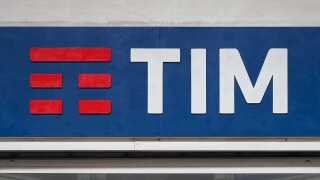The Swedish company has admitted that a 2019 internal investigation revealed “unusual expense claims in Iraq, dating back to 2018”.
These covered “the conduct of Ericsson employees, vendors and suppliers in Iraq during the period 2011-2019”, said Ericsson in a statement.
CEO Börje Ekholm (pictured) told Sweden’s business newspaper Dagens Industri: “What we are seeing is that transport routes have been purchased through areas that have been controlled by terrorist organisations, including ISIS.”
Ericsson said the investigation “found serious breaches of compliance rules and the code of business ethics. It identified evidence of corruption-related misconduct.”
A particularly damning paragraph in Ericsson’s statement, published last night, says: “The investigating team also identified payments to intermediaries and the use of alternate transport routes in connection with circumventing Iraqi customs, at a time when terrorist organizations, including ISIS, controlled some transport routes.”
The company’s investigators “could not determine the ultimate recipients of these payments. Payment schemes and cash transactions that potentially created the risk of money laundering were also identified.”
Observers will be quick to point out the similarities with the US case against Chinese rivals Huawei and ZTE – though in those cases the vendors were dealing with a legal government, of Iran, not a terrorist organisation.
The US case against ZTE dates back to 2012, when the FBI in the US started investigating allegations that the company was smuggling telecoms equipment, which included US-origin hardware and software, to Iran in violation of US sanctions.
In 2018 the US Department of Commerce (DoC) imposed a fine of US$1.4 billion on ZTE and appointed a lawyer to monitor it, to ensure it was not smuggling to Iran and other embargoed countries.
But during the ZTE investigation the US leaked documents that seemed to show Huawei had been doing similar things, via a holding company called Skycom.
That culminated in the arrest in 2018 of Huawei’s CFO Meng Wanzhou at Vancouver airport in Canada. The US wanted to extradite her to face charges, which she denied vigorously, that she lied to the HSBC bank in Hong Kong over her relationship with Skycom.
Meng was finally released last year after an out-of-court settlement.
Now, it seems, by Ericsson’s own admission, that its agents at the very same time were involved with ISIS, also known as the Islamic State, ISIL or Daesh, that at one time held about 40% of Iraq.
The company said last night: “The investigation could not identify that any Ericsson employee was directly involved in financing terrorist organizations,” but it added: “As a result of the investigation, several employees were exited from the company and multiple other disciplinary and other remedial actions were taken.”
In addition, “Ericsson terminated a number of third-party relationships and prioritized the Iraq country business for enhanced training and awareness activities, policies and procedures, and third-party management processes.”
Ericsson said it “is continuing to work with external counsel to review the findings and remediation resulting from the 2019 investigation to identify any additional measures that the company should take”.






